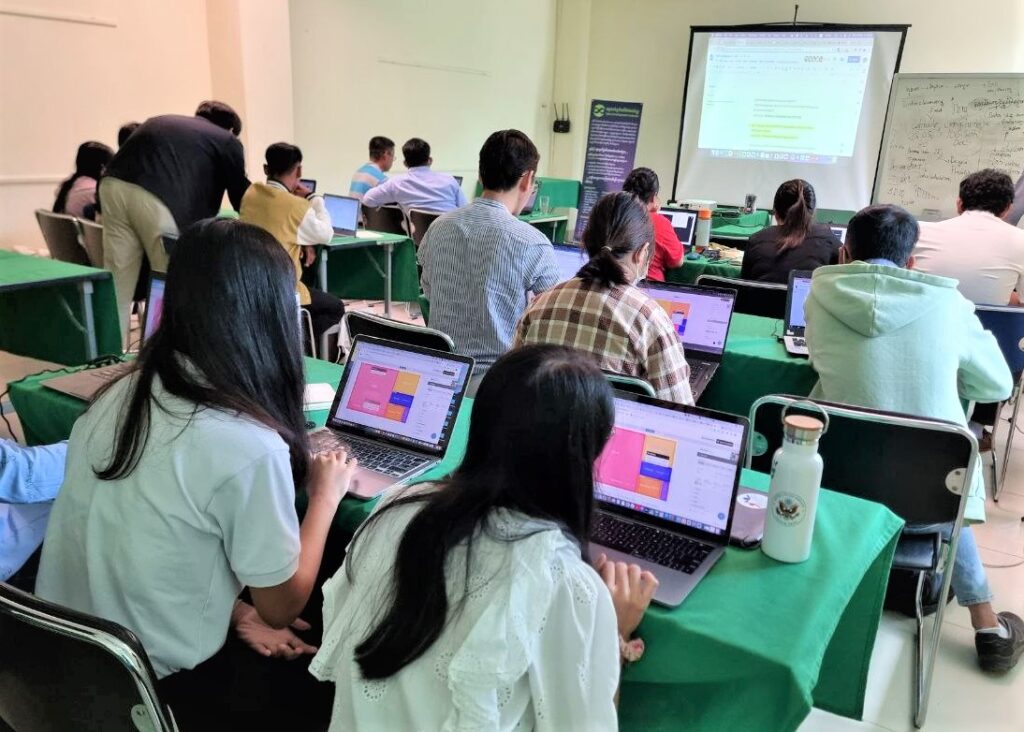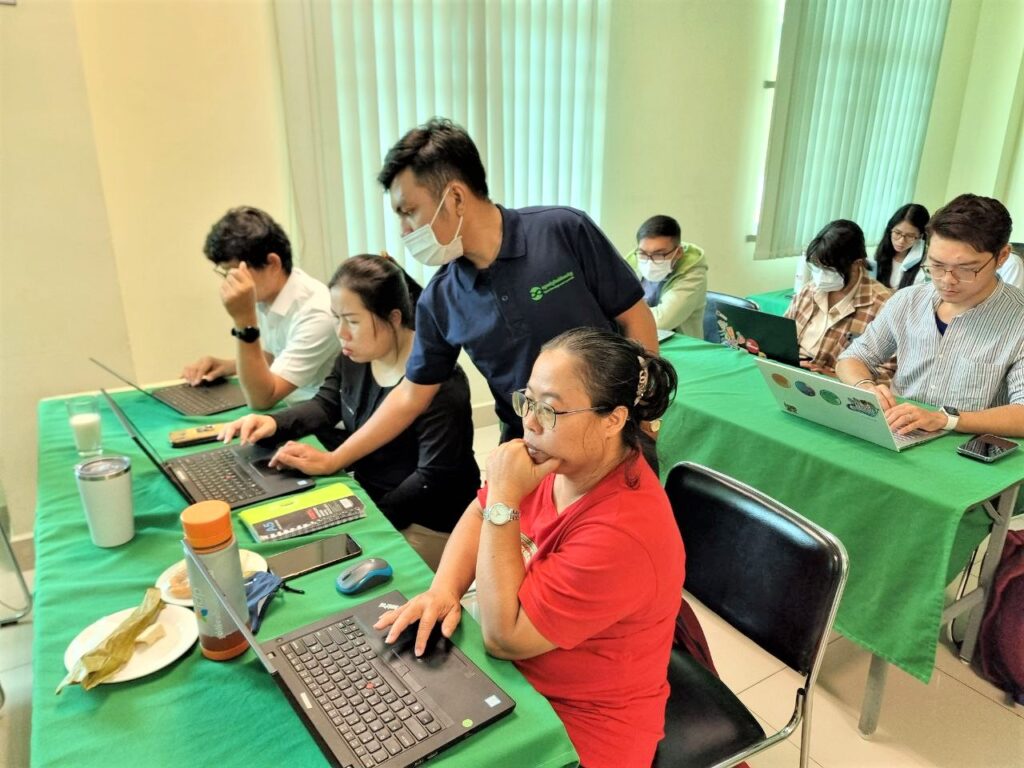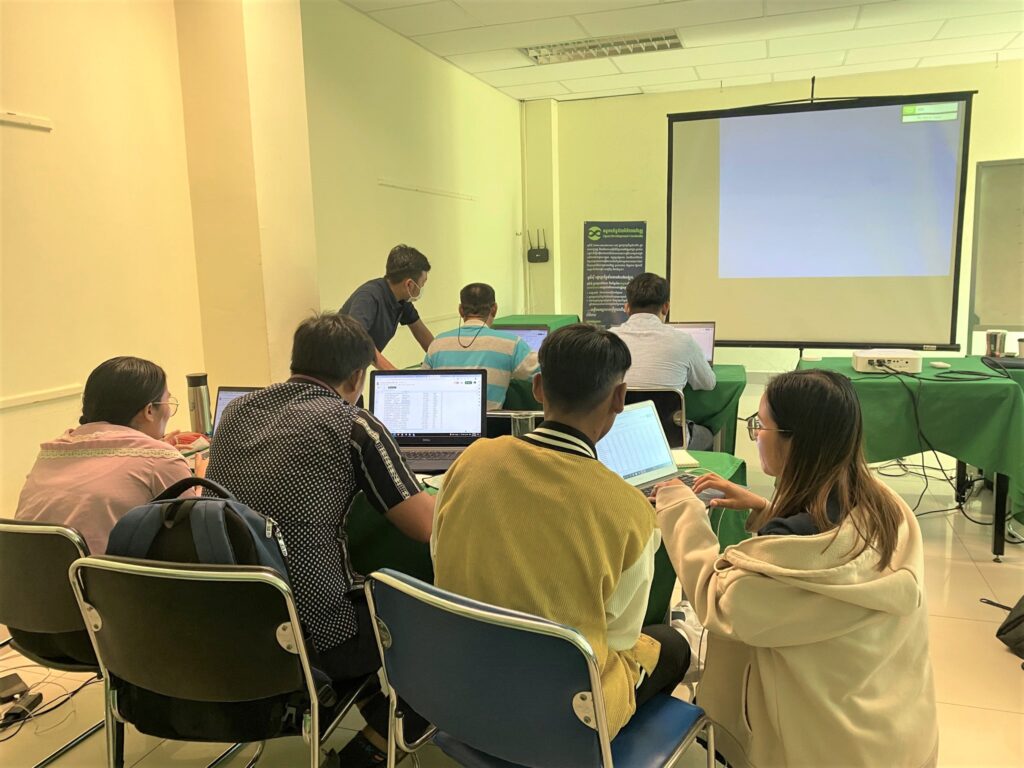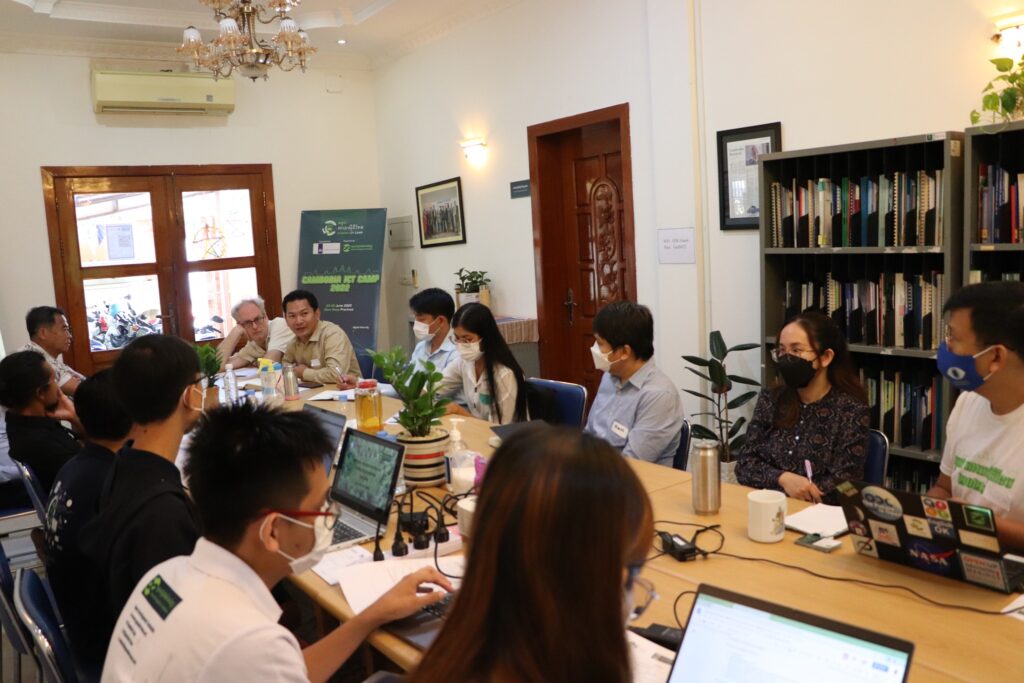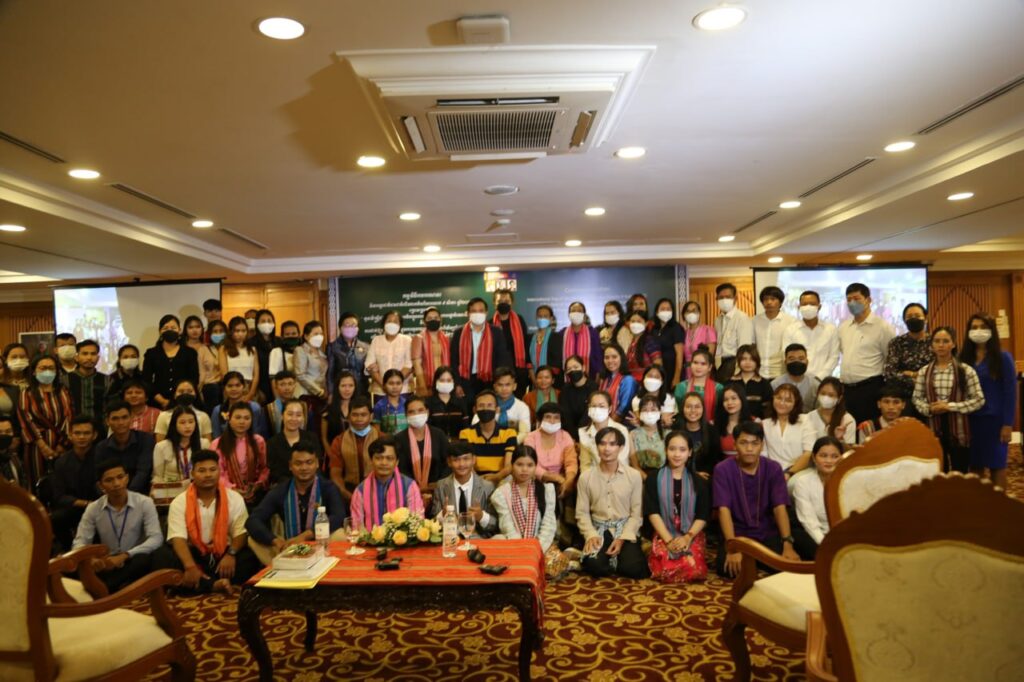Open Development Cambodia (ODC) hosted a training on “Data visualization and storytelling” on December 20-21 and 26, 2022, with 24 participants, including journalists, citizen journalists, indigenous youth journalists, journalism students, and CSOs. People with disabilities and LGBTQIA+ are encouraged to join. This training was divided into two parts. The first stage was a two-day online training that included lessons and exercises. The second phase was a one-day physical training session focused on recapping the entire training and exercises.
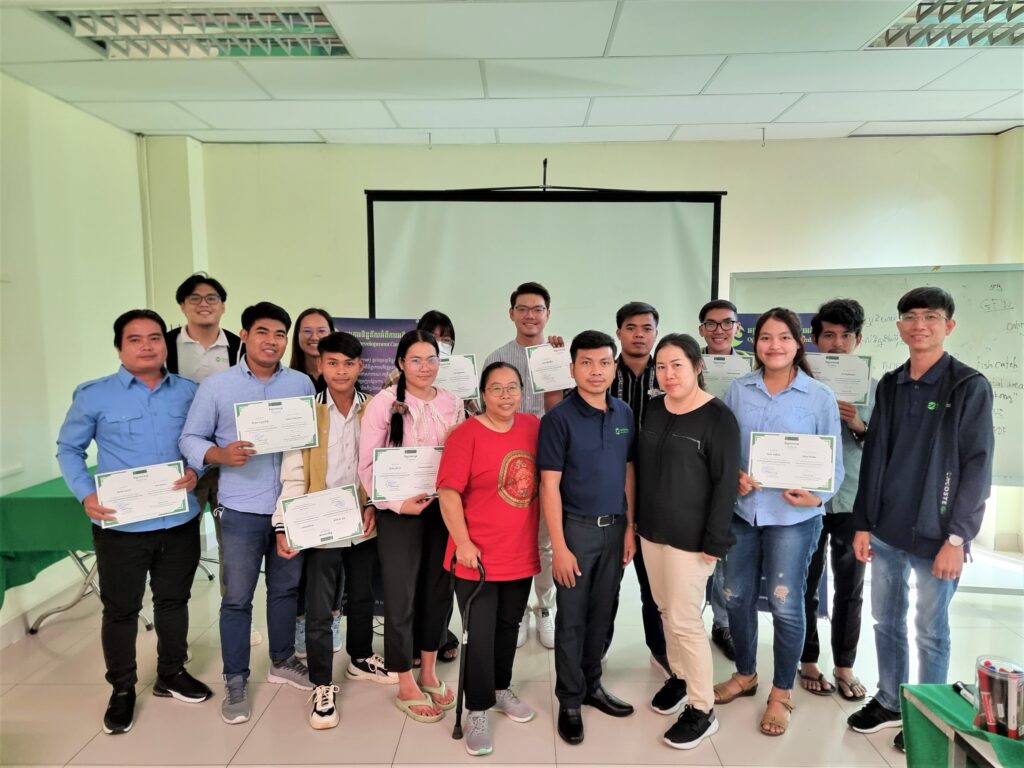
This training was funded by USAID Cambodia through FHI 360 as part of the Civil Society Support (CSS) Project‘s Cluster Anchor Grant.
Day 01: Understanding data
Before the session began, an ODC representative made a welcoming remark about the project and an introduction to help the attendees get to know one another.
Following that, the participant spent time preparing for the pre-test, which was used to assess their capacity before the program began. Mr. Vong Pisith, the trainer, began the lesson on understanding data to provide insight into the importance of data, the different types of data and information, and the transparency of open data. After everyone understood the data well, the trainers demonstrated how to find it using the data portal and Google advanced search. The participants were then given an exercise by finding their needs data in PDF format and other natural resource data on the ODC portal.

The trainer, Mr. BAN Chanphalla, then moved on to the next lesson on data standardization, which instructed the participants about data standards and how to format their data before diving into data visualization. The participants were introduced to the function of creating a new spreadsheet, adding sheets, making a copy, columns, and rows, inserting charts, filtering, and pivoting tables on google sheets, as well as importing comma-separated values (CSV) files into the spreadsheet and Microsoft Excel. The trainers also illustrated the data clean as a significant part of the data analysis. This lesson explained why we need to clean data and introduced them to a method for cleaning data to make it legible by introducing techniques such as trimming whitespace, removing duplicates, formatting text, splitting columns, data validation, and finding and replacing.
Day 02: Data visualization
On the second training day, the trainers took a few minutes to review the previous day’s lesson before continuing with Mr. Sam An Mardy’s agenda on data visualization principles. The trainer will introduce what motivated us to create the visualization, what exactly the data visualization is, how to tell a data-driven story, how to choose the right graph and chart type, and how to display it correctly. Mr. Vong Pisith then showed the participants a demonstration and examples of the Flourish. The participants then continue working on the group exercise to create the chart and graph with Flourish. Everyone took the post-test at the end of the second day and looked forward to the physical training on the third day.

Day 03: Individual practice
The agenda for the last day of training covered lesson reminiscence. Everyone attended the physical training and continued the lesson on data visualization with Flourish. The participants started learning how to make a map chart out of geographical data and how to incorporate those visualizations into the story. Then the participants were given the opportunity to practice it independently and complete the individual assignment by creating storytelling using data visualization. Finally, the trainees were asked to evaluate before closing remarks and provide the training certificates.
